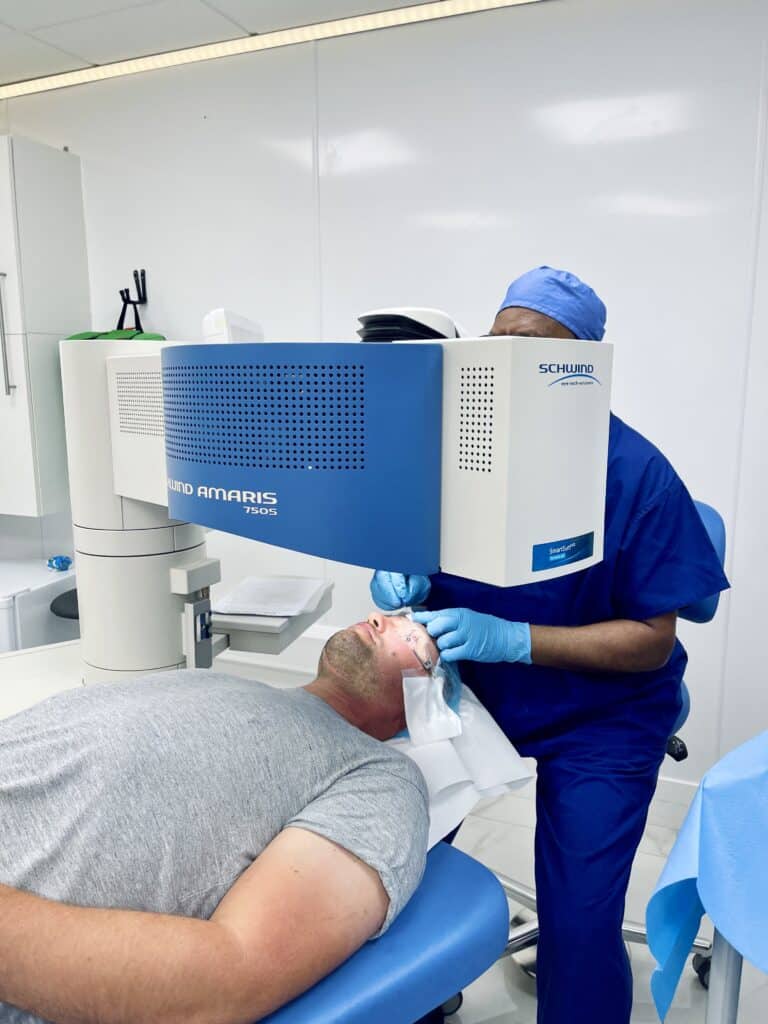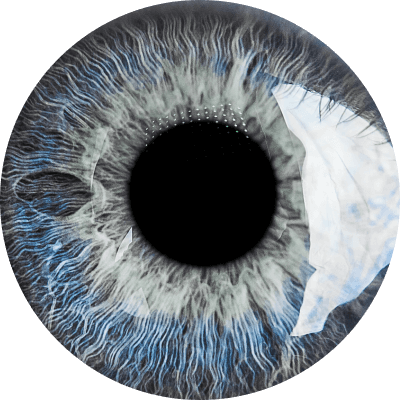Tailored
Astigmatism Treatment
Restore crisp, balanced vision with advanced astigmatism treatment, a precise, cornea-preserving solution that smooths irregular curvature for sharper focus and long-lasting comfort.
Tailored
Astigmatism Treatment
Restore crisp, balanced vision with advanced astigmatism treatment, a precise, cornea-preserving solution that smooths irregular curvature for sharper focus and long-lasting comfort.
★★★★★
Rated by London Patients
30+
years of surgical experience
Aftercare
1-Year on all Treatments
Technology
Alcon Refractive Suite
Why Choose Precision Vision London?
Expert Surgeons. Advanced Technology. Personalised Care.
At Precision Vision London, your vision is in the safest hands. Led by Dr C.T. Pillai, an award-winning refractive surgeon with extensive international training, we deliver outstanding outcomes for astigmatism using precision diagnostics, world-class laser platforms and individually tailored treatment plans.

The best way to find out which treatment suits you is to book a consultation, where we’ll carry out advanced diagnostic scans and give you a clear recommendation.
What is Astigmatism?

Astigmatism occurs when the cornea or lens has an irregular curvature, causing vision to become blurred or distorted. Unlike normal corneas, which are spherical, astigmatic corneas typically have an oval or rugby ball-like shape, which prevents light from focusing correctly on the retina and results in unclear vision. Treatment options include traditional spectacles, contact lenses, or advanced surgical interventions such as LASIK to reshape the cornea.
Situated in Harley Street London, Precision Vision London offers bespoke eye treatments including LASIK and LASEK procedures. Under the leadership of esteemed surgeon Dr CT Pillai, we prioritise individualised care over high patient volumes to achieve superior outcomes. Our specialisation in laser eye surgery helps patients achieve spectacle independence, focusing on a personalised and expert approach to vision correction.
Treatments for Astigmatism

At Precision Vision London, we offer a range of advanced treatments to correct astigmatism and restore sharp, 20:20 vision. Our treatments, whether non-surgical or surgical, are designed with your safety and comfort in mind and are proven to be effective in reducing dependency on glasses or contact lenses.
Laser Eye Surgery
Laser eye surgery, such as LASIK or LASEK, is a trusted and precise procedure that uses guided lasers to reshape the cornea. This gentle process allows light to focus correctly on the retina, correcting astigmatism, short-sightedness, long-sightedness, and even presbyopia. It offers lasting visual clarity with a quick recovery time, ensuring safety and comfort for our patients.


Implantable Collamer Lens (ICL) Surgery
For patients with thin corneas, dry eyes, or strong prescriptions, ICL surgery offers a cornea-preserving solution. The EVO Visian ICL involves placing a soft, biocompatible lens inside the eye to correct astigmatism and other refractive errors. This reversible treatment provides high-definition vision and long-term comfort without permanently altering the cornea.
Lens Replacement Surgery
Lens Replacement Surgery, also known as Refractive Lens Exchange, is an ideal solution for individuals over 45 or those with both astigmatism and early signs of cataract. This procedure replaces the natural lens with a high-performance intraocular lens implant, providing permanent correction for refractive errors while preventing future cataract development, offering a comprehensive solution for vision correction.

Can Astigmatism Be Optimally Treated for London Patients?
Yes. Astigmatism can be corrected with glasses, contact lenses, or surgery. The most suitable option depends on the type and degree of astigmatism and the health of your eyes. We understand that each case is unique, and we tailor our treatments to your specific needs. Notably, irregular astigmatism caused by an uneven corneal surface or an irregularly shaped lens often cannot be fully corrected with standard spectacles.
At Precision Vision London, our team of experienced professionals offers a full spectrum of solutions, including advanced laser procedures (LASIK/SMILE/PRK) and lens-based treatments (ICL/lens replacement). These can also address astigmatism in combination with short-sightedness or long-sightedness.
Before recommending treatment, we carry out a comprehensive consultation and in-depth diagnostic work-up (corneal topography, wavefront analysis, and high-resolution imaging). This safety-first approach ensures we select the option that provides you with the sharpest, most comfortable vision for your prescription and lifestyle.
Your 4 Steps Treatment Plan
Our approach revolves around prioritising your optimal well-being.
Prior to your consultation
Your first point of contact will be with Precision Vision London’s highly trained and knowledgeable patient coordinators.
Treatment
On the day of your treatment, our clinical team will guide you through the process and address any concerns or questions you may have.

Consultation
At Precision Vision London, we believe that it is essential to be selective to ensure that every patient has the best treatment to suit their visual and lifestyle needs which is why determining suitability is incredibly important.
Aftercare
Your aftercare begins immediately after treatment when you are taken to the recovery room to relax and, when you are ready to leave, our specialist nurse will examine you before you go home.
Precision correction for astigmatism, confident, everyday clarity.
Astigmatism FAQ's
Astigmatism is a common refractive error caused by irregular corneal or lens shape. Symptoms include blurred vision and eyestrain. An eye exam with our optometrist can diagnose astigmatism.
Treatment options include glasses, contact lenses, and refractive surgery like LASIK or Implantable Contact Lenses (ICLs). The choice depends on factors like prescription strength and individual preferences.
Yes, children can have astigmatism. Treatment options for kids are similar to adults and may include glasses or contact lenses. Early detection through routine eye exams is crucial.
Astigmatism can have a genetic component, meaning it may run in families. However, environmental factors such as eye strain or injury can also contribute to the development of astigmatism. If you have a family history of astigmatism or other refractive errors, it's essential to undergo regular eye examinations for early detection and treatment.
Yes, astigmatism can often be effectively corrected without surgery using eyeglasses or contact lenses. These corrective lenses compensate for the irregularities in the shape of the cornea or lens, providing clear vision.
Yes, refractive surgery options like Clear Lens Replacement with multifocal lenses can address both astigmatism and presbyopia, providing clear vision at various distances.
While all surgeries carry some risk, refractive surgery is generally safe. Our experienced surgeon, Dr. C T Pillai, discusses potential risks during the consultation, and comprehensive pre-operative evaluations minimize risks.
It's recommended to have regular eye examinations, typically every one to two years, to monitor your eye health and detect any changes in vision or astigmatism. However, if you experience sudden changes in vision or other concerning symptoms, you should schedule an appointment with an eye care professional promptly.
Meet Our Surgeon

Dr. CT Pillai MD DO, FRCS (Edin), FRCOphth (UK)
Meet Dr. CT Pillai, a distinguished ophthalmologist with MD, DO, Fellow of the Royal College of Surgeons, Edinburgh FRCS(Ed), FRCOphth (UK) credentials. As the Founder and Medical Director of Precision Vision, a leading Harley Street laser eye surgery clinic, Dr. CT Pillai brings unparalleled expertise to deliver precision and excellence in vision care.
Life Changing Astigmatism Treatment in London
At Precision Vision London, we correct astigmatism with tailored laser procedures (LASIK/SMILE/PRK) or implantable lenses (ICL), freeing you from distorted, ghosted vision and reducing reliance on glasses or contacts. Our approach preserves corneal health, targets your exact cylinder, and is planned around your cornea, prescription, and lifestyle for crisp, comfortable vision day and night.
As a trusted, independent Harley Street clinic, we’re led by Dr C. T. Pillai, a renowned refractive surgeon with 30+ years’ experience. From advanced diagnostics to outcome-focused aftercare, our specialist team delivers the highest standards of safety, precision, and personalised care. Don’t just take our word for it, hear from our satisfied patients about their life-changing experiences with us.
✅ Precise correction of cylinder (astigmatism) to straighten lines and sharpen text.
✅ Multiple options: LASIK/SMILE/PRK or ICL when laser isn’t ideal (e.g., thin corneas, higher prescriptions).
✅ Comfortable, efficient procedures with rapid visual recovery.
✅ Evidence-led planning & 1-to-1 aftercare for reliable, long-term clarity.
Call us today 020 3884 6805 or book your consultation to take the first step towards a clear, confident vision without distortion.



